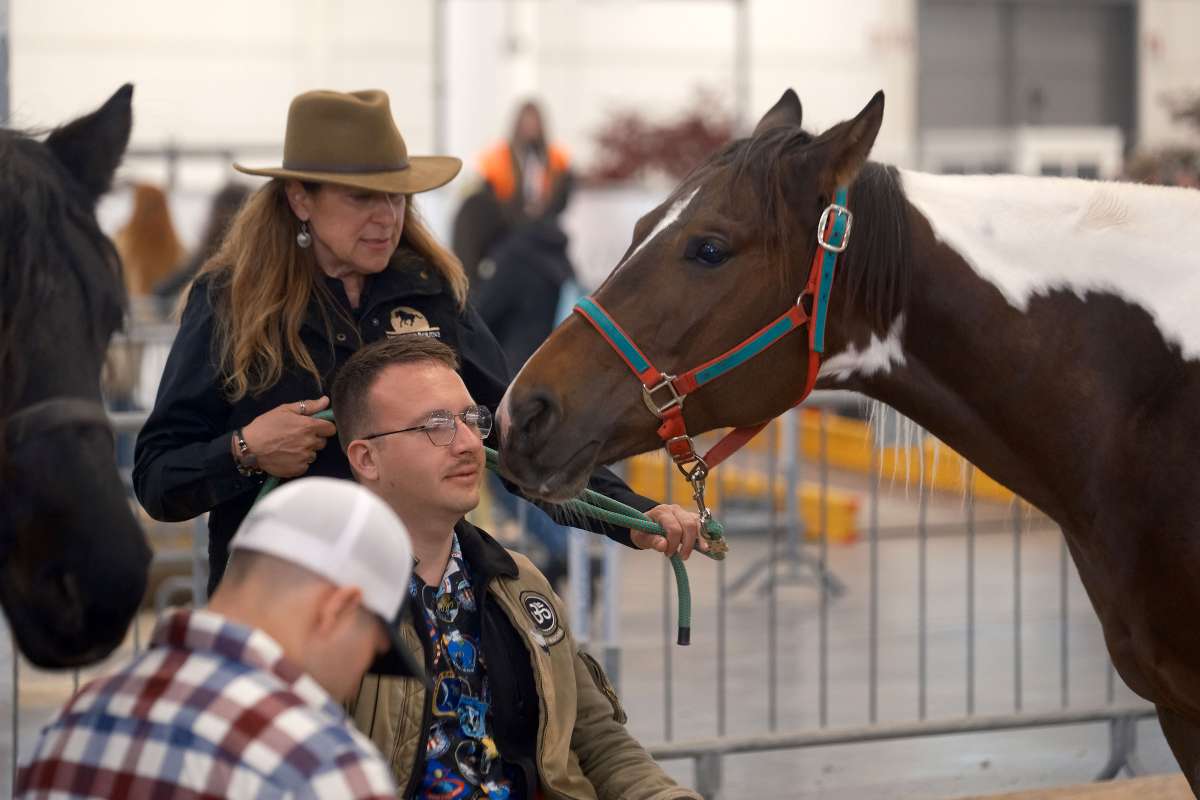“One of the most significant applications of Animal-Assisted Interventions (AAI) is the ability to help people rediscover well-being and peace by working on emotional aspects. I believe that, especially in these times, it is essential to support often-overlooked groups, such as military personnel, through the unique support that a relationship with a horse offers. It is scientifically proven that an empathetically guided relationship with these animals can slow down heart rate, promoting emotional regeneration,” began Michele Marconi, a psychologist at Santa Giuliana Hospital, during the presentation of the Impronte Equine project today, attended by Minister for Disabilities Alessandra Locatelli and Veronafiere President Federico Bricolo.
Re-establishing the proper perception of “invaded space” versus “invading space” is crucial for military personnel stationed at bases or returning from missions. This concept, combined with security, intentionality, and emotional awareness, forms the foundation of the assisted therapy sessions that Impronte Equine conducts in Pavilion 11 at Fieracavalli for the military personnel of Camp Ederle, the United States Army base in Vicenza that hosts the United States Army Africa (USARAF).
Within a round pen with two American horses, participants engage in ground-based activities that range from contact work—such as compression therapy for relaxation—to mindfulness exercises to connect with the animal through breathing, as well as guidance on approaching the horse with full respect for each other’s personal space.
“In America, it’s estimated that 22 soldiers die by suicide every day due to post-traumatic stress. In my country, substantial funding is allocated for innovative approaches like equine therapy dedicated to psychological rehabilitation. I’m truly thrilled that Michele and I were able to share the importance of this work here in Italy, specifically here at Fieracavalli, where horses are appreciated for all their many dimensions, including their rehabilitative role,” concluded Giuliana Marple, professor at the University of Utah.




























